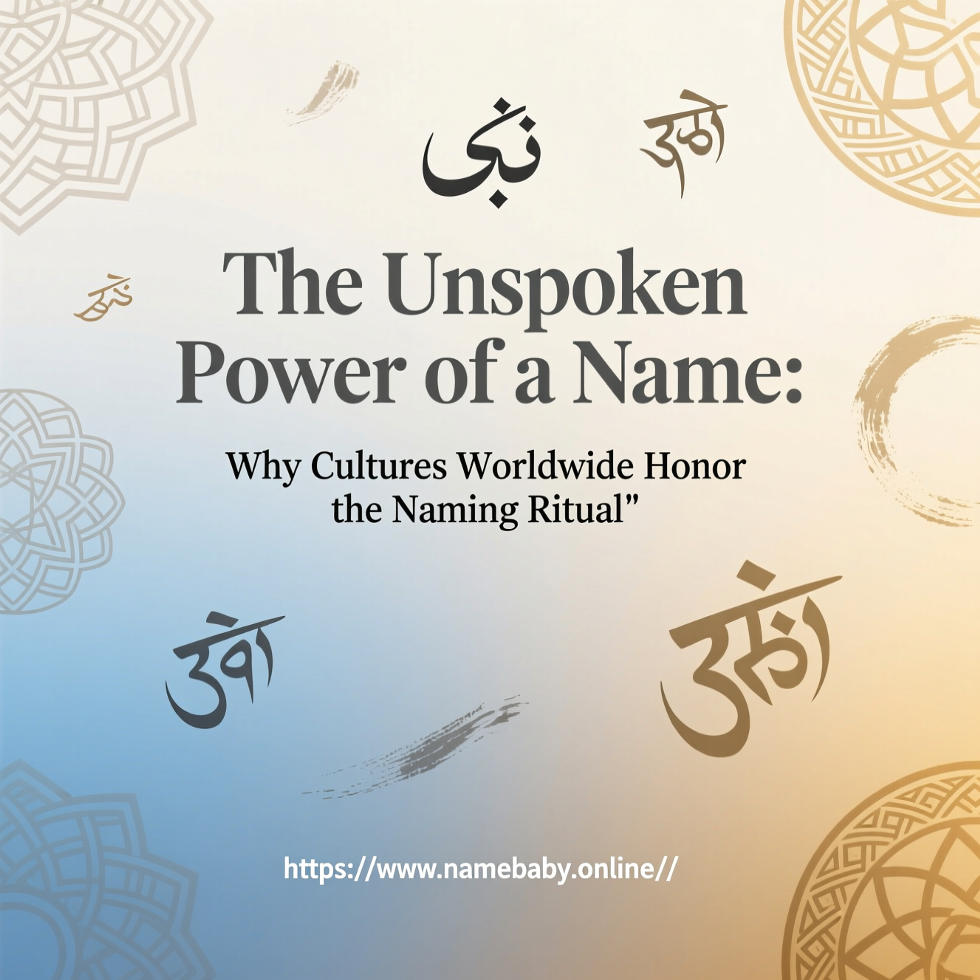
The Unspoken Power of a Name: Why Cultures Worldwide Honor the Naming Ritual.
🌟 Introduction: More Than Just a Label
Shakespeare famously asked, "What's in a name?" The answer, as parents across every continent and every generation know, is: Everything.
Bestowing a name upon a child is arguably the first and most profound act of parenting. It is a decision steeped in far more than simple preference—it is a conscious, spiritual, and cultural choice that connects a newborn to an ancient chain of tradition, belief, and history.
For parents today, the options are limitless, but the weight of that choice remains the same. Why do we, as a global society, place such extraordinary importance on the act of naming? To truly grasp the gravity of this tradition, we must look at the deep-seated cultural, religious, and traditional roots that define our world. (For broader parenting advice, visit our main resource on essential parenting guidance: parenting-expert.com/ultimate-guide-to-parenting.
I. Cultural Significance
A name is a child's first piece of cultural heritage. It's an immediate flag that signals where they come from and who they belong to. Across different cultures, names serve as living family documents.
A. Honoring Ancestry: The Chain of Kinship
In many traditions, a name is a direct link to the past, ensuring the memory of revered elders' lives on.
Scottish & Irish Naming Patterns: Historically, strict rules dictated naming, ensuring the family lineage was preserved and honored.
Patronymics in Scandinavia and Iceland: A child’s last name was derived from the father's (or mother's) first name, linking them directly to their parent.
Tribal Naming: In many global traditions, a name is chosen based on a specific event, trait, or prophecy, making the name a unique story. To search for names by cultural origin and meaning, use our dedicated list babynamegenerator.ai.
B. Names as Prophecies: Wishing a Life
In many cultures, the meaning of a name is not just a definition—it is an intention set for the child's life. Names meaning "strength," "joy," or "wisdom" are common everywhere, reflecting universal aspirations.
II. Religious Importance: Consecrating the Soul
For billions of people, the naming ceremony is a foundational religious rite that marks the child's entry into the faith community.
A. The Naming Ritual in Abrahamic Faiths
Whether through Baptism in Christianity or the Aqiqah ceremony in Islam, the naming process is tied to welcoming the child into the spiritual community and often choosing names that align with prophetic figures or saints.
B. Hindu and Buddhist Traditions
The time of birth often dictates the name. The Hindu Namkaran ceremony is often guided by astrology, with the name's first letter determined by the child's Nakshatra. For parents interested in aligning their child's routine with spiritual timing, our sister site offers valuable guidance, particularly in sleep routines for toddlers: toddler-sleep-training.com/sleep-routine-guide/.
III. The Psychological Power: Shaping the Self
Beyond culture and religion, a name holds incredible psychological weight, acting as a pillar of self-identity.
Names don't just label an individual; they help form one.
A. Self-Perception and Confidence
A name is one of the first words a child hears repeatedly. Names chosen with personal meaning can instill a quiet sense of confidence and belonging. As the child grows, positive reinforcement of their identity is key—a concept often explored in depth on our resource for child confidence and development, kids-development.com/confidence-building-tips.
B. The Community Connection
A name is a social tool. It instantly places the child within a social and historical context. To see how names fluctuate in popularity over time, explore our annual babynamegenerator.ai.
IV. Finding the Perfect Name in the Digital Age
Today, the naming decision is more complex than ever. How do you honor a rich heritage while embracing a modern, unique preference?
This is where the technology behind naming meets the timeless tradition.
Tools like the Baby Name Generator AI on our website don't replace tradition; they serve as a powerful bridge. We help you filter names by origin, meaning, and sound, helping you find that perfect synthesis of history and future. In fact, to understand the precision behind our suggestions, you can discover how our AI naming tool works: Baby Name Generator AI.
Your final choice will always be a reflection of your love, your hopes, and your respect for the traditions that brought you here.
🚀 Ready to Uncover the Story of Your Child's Name?
Don't leave the most important decision up to chance. Whether you're seeking a name with deep religious meaning or simply one with a beautiful, powerful meaning, our cutting-edge AI tool is here to guide your journey.
👉 Start exploring the perfect name that honors your unique story. Click here to use the Baby Name Generator AI.
